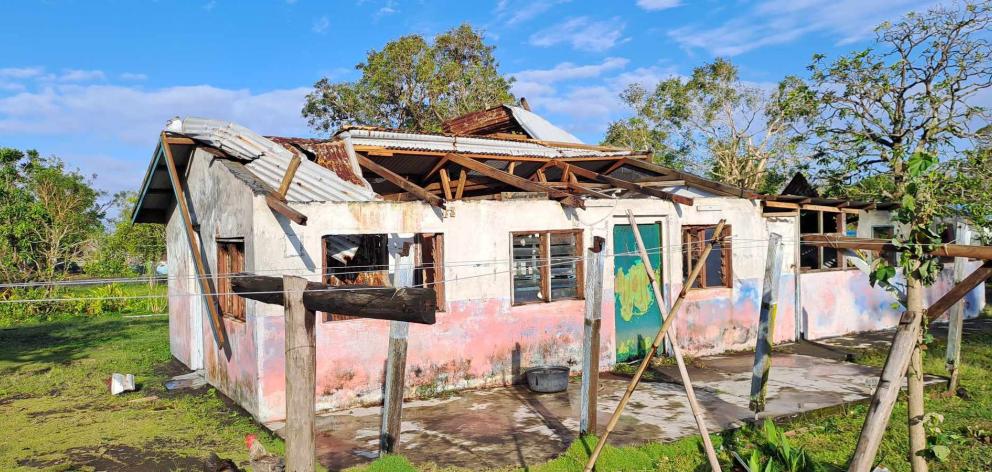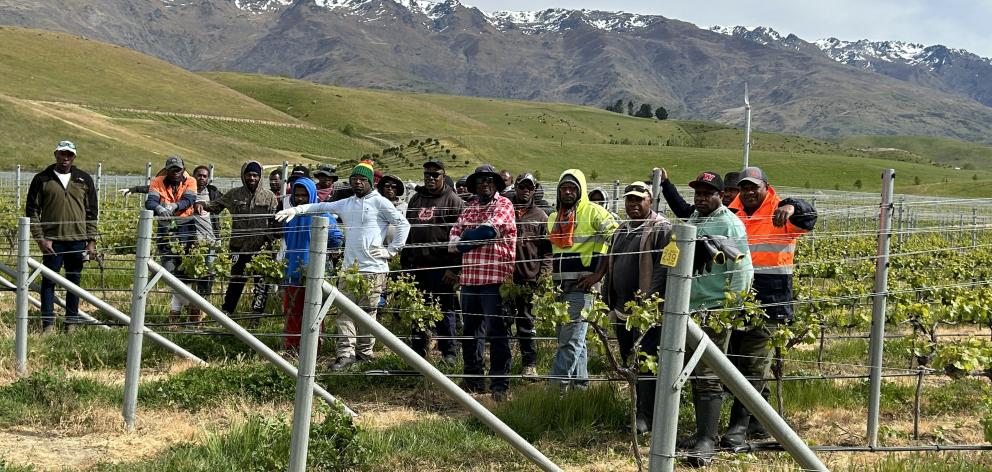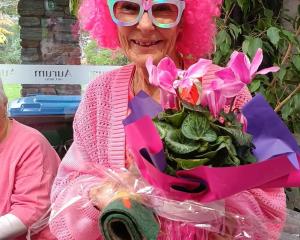Cyclone Lola hit the Vanuatu archipelago at Labour Weekend, leaving a trail of destruction — including the communication infrastructure, meaning many Ni-Van workers in New Zealand were unsure what was happening at home.
Grape Horizon team leader and supervisor Peter Bumseng said it was good to be working in New Zealand and sending money to rebuild houses and contribute to the community.

The down side was ensuring those back home had a support system to rebuild their houses.
"We’ve been working through that in some previous cyclones, sending money and supporting the community to rebuild."
Cyclones are a fact of life in Vanuatu. In March, Cyclones Judy and Kevin hit the islands two days apart.

On Ambrym, where Mr Bumseng was from, the medical centre lost its roof at Labour Weekend. The community had just finished replacing the roof after the March cyclones.
However, the building was strong and the damage significantly easier to repair than replacing a building.
The medical centre serves seven communities, offering healthcare from pharmacy to maternity.

At this time of the year, summer workers were arriving to supplement the winter crews and some had had their flights diverted via Fiji.
The Central Otago community had been very supportive of Vanuatu after previous cyclones, not just financially but also mentally, and he was grateful for that, Mr Bumseng said.
Right now there were two things the workers needed.
"At the moment, yes, we need money but also emotionally, we need that support here, just to help the workers while they are away, [to ensure] that they are mentally fit to be productive in the work they do."

Seasonal Solutions had pastoral care workers to look after the Ni-Van men and they had connected with team leaders, like Mr Bumseng, to find ways to help the workers, he said.
People were still arriving, but during summer there would be more than 500 Ni-Van living in the district.
Mr Bumseng had been coming to Cromwell since the 2006-7 season, he said.
A lot of men came year after year, which helped the employers, but they also rotated some places to share the opportunity.
Earning in Central Otago meant families could build strong, resilient houses that could survive cyclones, and that made a huge difference, he said.
It was hard to be away from family for seven months at a time but the pastoral care and the support in the community here helped.
"I’ve been here for a couple of years and I like Central Otago because ... it’s more like a community-based society, it’s the same back home."

He had been involved in bringing Ni-Van to Central Otago since Mr Bumseng started in 2006, before there was an recognised seasonal employer worker scheme.
"The guys turn up every year. We have a very high return rate, which means the guys that return are trained so they are productive from day one.
"Analysis of the productivity of Ni-Van workers compared to backpackers showed, on an hourly rate, they were twice as productive ... that’s even allowing a couple of weeks for the backpacker to be trained up," Mr Dicey said.
Ni-Van workers were very motivated to be in Central Otago. There was no tax in Vanuatu but there was no subsidised healthcare and after 13 years old, school was no longer free.
"The money they earn here makes a significant, magnificent difference to what they are able to achieve."
But there was a two-way benefit, he said.
"It makes a significant difference to them but it makes a significant difference to us — their productivity, they’re just lovely people as a broad generalisation, their enthusiasm for work has transformed what we do here in Central Otago."
Anyone wanting to help could donate to Red Cross Vanuatu, Mr Dicey said.












